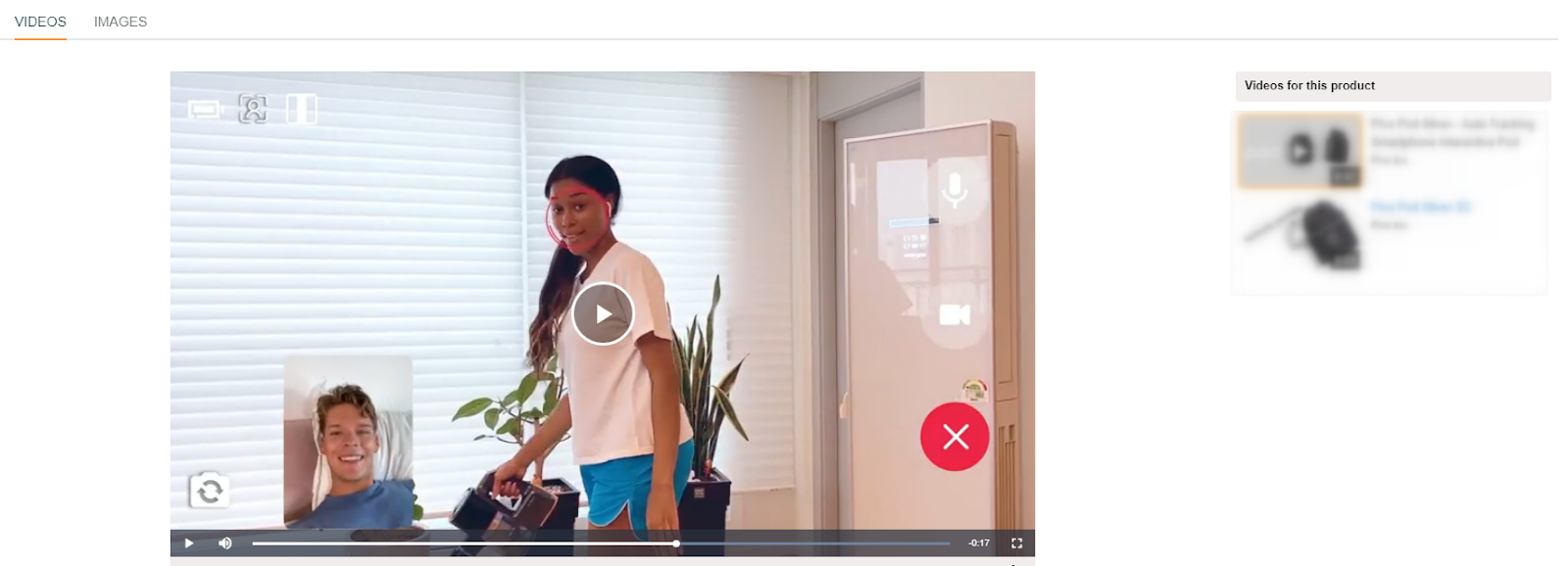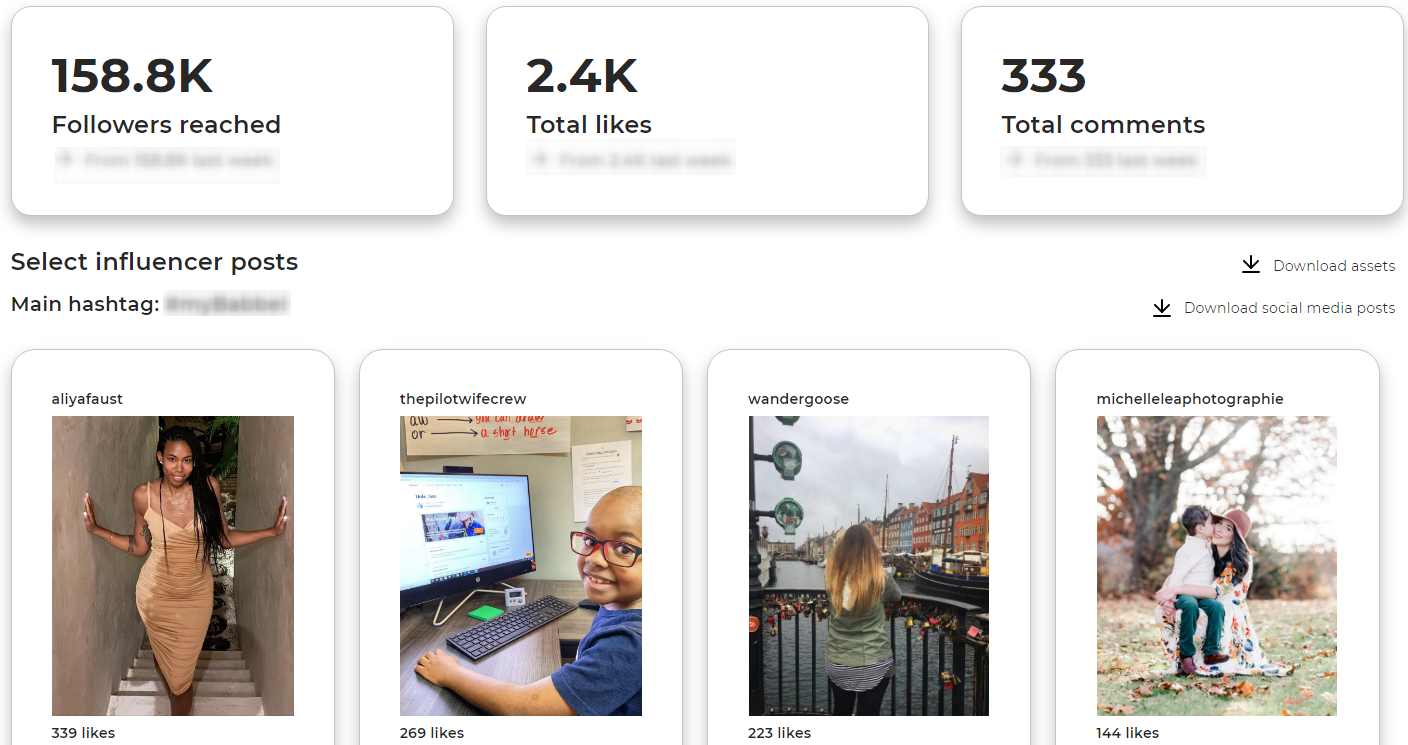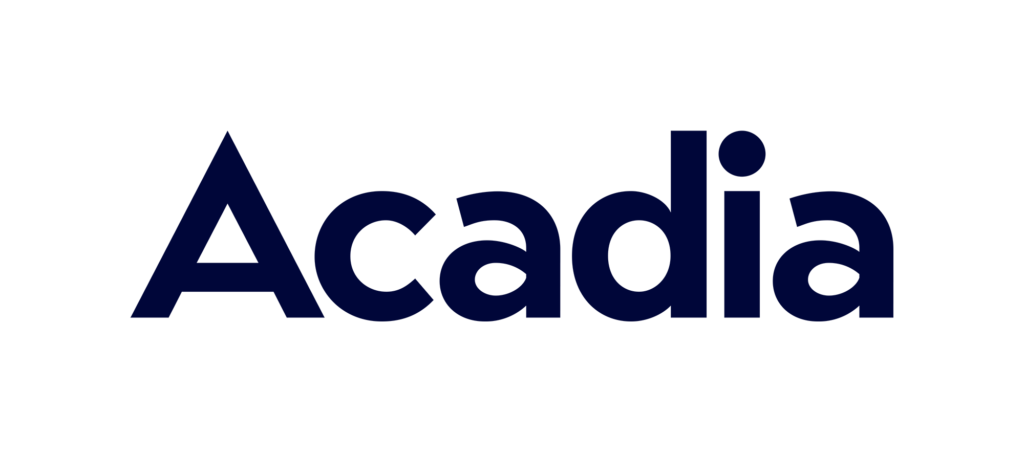When it comes to Amazon, is your brand leaving money on the table? The revenue from the channel is likely propping up various parts of your business, and you need to see YOY growth. What levers should you be pulling to stay competitive?
Bobsled’s Armin Alispahic has identified eight strategies that successful brands are harnessing to thrive in 2021. Are you following all of these proven best practices? Read on to find out!

1) Product page optimization that includes video
A) Apart from having well structured, informative and keyword-rich titles, bullets and A+ content, your product listings need to be visually appealing with a variety of images (product, product features, lifestyle, infographics etc.)
B) Video adds A LOT to the visual appeal. Consumers have switched to watching videos to get certain types of information vs reading because it’s faster and more convenient. A well rounded, engaging video on a product display page (PDP) will increase a brands’ chances of converting browsing Amazon shoppers.
C) Don’t forget to tweak product page content based on the season. You can refresh images (e.g. images of products placed under a Christmas tree during Q4), revisit your bullets to make them more holiday-specific, and update the backend keywords (‘best mother’s day gift’).
Above: Example of how the video section looks like on an Amazon PDP. If multiple videos have been uploaded, all the options will display on the right side of the page.
2) Use Amazon Promotions to win new customers and encourage brand loyalty
A) Promos are a fantastic way to entice customers to buy as they can create a sense of urgency around a purchasing decision
B) Develop a promotional calendar and plan your promos in advance. Make sure to cover major shopping holidays but also pay attention to the seasonality/nature of your catalog. For example, a summer product needs lead-up promos before the peak of the season starts – achieving increased sales velocity and a boosted Best Seller Rank (BSR) in June will translate to more success during the peak months of July and August product.
C) At the same time, retain flexibility with your promo calendar. Inventory levels and the performance of past promotions will influence how you need to pivot moving forward. For example, an overstocked item may require additional promos, while you may want to lower the discount or cancel a promo if your bestseller is having manufacturing issues and you can’t keep up with the organic demand.
D) Amazon started assigning a red discount badge that became highly visible on the SERP in Q3 2020. It applies when the price is the lowest one from the past 30 days. We’ve seen amazing results in terms of increased sales and conversion rates from this particular promo.
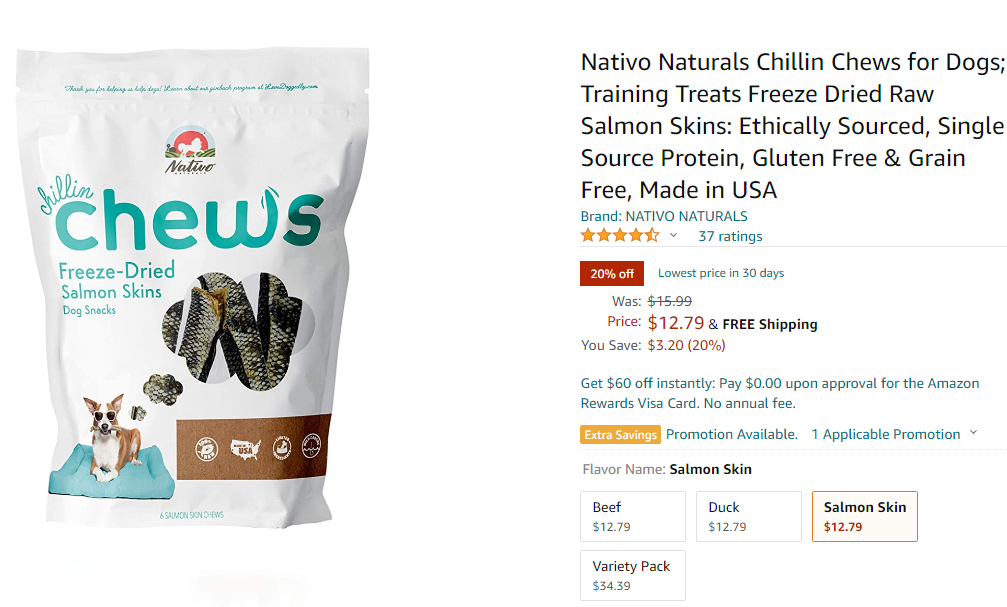
Above: Example of the red discount badge on a PDP.
3) Support growth on Amazon by driving relevant off-Amazon traffic to your listings
A) Some brands will never send their email or social media traffic to Amazon, which is a strategy that has its own pros and cons. But if you’re open to it, accept the risk of channel cannibalization for 6-12 months, and grow the Amazon channel by driving your existing customers and/or followers to the marketplace through social and email campaigns. This testing period will give you invaluable data about which channel converts traffic best (there’s a very strong chance it’s Amazon)
B) Similar to creating a promo calendar, brands can plan regular blasts and campaigns with their existing customer base and bring this traffic to Amazon.
C) Because these existing audiences already have some familiarity with your brand and product line they are much more likely to convert, and there’s a better chance they’ll write you a positive product review. All of which has a positive impact on your BSR, which in turn helps with native Amazon traffic
D) You can also experiment with sending off Amazon paid traffic to your PDPs or Storefront – Google, Facebook and Instagram ads are the most effective and popular.
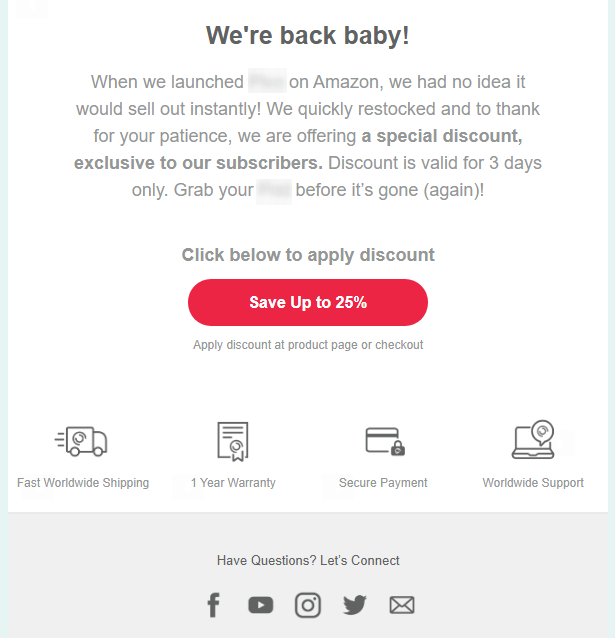
Above: Example of an email blast from a Bobsled client.
4) Develop an influencer marketing strategy that works
for your brand
A) Due to the highly fragmented media landscape it can be difficult to connect with relevant new audiences. Influencer marketing involves collaborating with individuals or entities who promote your brand and product line to their niche audience, and is a simple way to increase brand awareness
B) Brands have the option of partnering with influencers directly or using 3P solutions and platforms that help facilitate brand-influencer relationships
C) When choosing influencers, it’s good to partner with those who are part of Amazon Associates Network. This program helps content creators, publishers and bloggers monetize their traffic. With millions of products and programs available on Amazon, associates use link-building tools to direct their audience to specific recommendations. This allows both parties to easily track the effectiveness of every campaign.
D) Amazon Live is another way to increase brand awareness and get more traffic on your listings. Oftentimes, brands don’t have in-house capacity to create content. As this is a service many influencers and Amazon Associates offer, we’re seeing this outsourced a lot lately. For more info, check out
Amazon Livestream Overview For Brands
E) Another approach to influencer marketing is through companies that specialize in sourcing influencers for brands. Such providers ensure there’s a genuine interest in the product, and they work with influencers to create content that is then posted on social media as well as Amazon in the form of product reviews. Special promo codes can be created on the brands’ side so the performance is actually tracked and it’s easy to see how effective a certain campaign has been
Above: Screenshot from an influencer marketing campaign
5) Learn from historical performance data
A) It’s important to look back and analyse strategies that worked or failed in the past. An easy win is to mimic everything that was unquestionably successful from past years.
B) Identify the root cause of unsuccessful projects. What can be done better this year? For example, discounts were not steep enough, competition was doing XYZ better than us, supply chain issues that caused major stock outs etc
C) Although it’s not a glamorous part of ecommerce, accurately tracking sales velocity and maintaining healthy FBA inventory levels is the best way to grow Amazon revenue for many brands. Amazon had huge issues with fulfillment in 2020 and successful brands were able to utilize their own fulfillment or quickly outsource the service so there were limited interruptions with customer orders. If you had inventory or fulfillment headaches last year, what are you doing to prevent similar issues moving forward?
Why Bobsled?

- An Amazon-focused digital agency established in 2015
- 40 team members who share best-practices across industries, programs, and processes
- Works with 70 mid-market Vendors & Sellers across Amazon’s key western markets
- Thought leaders in the space, including a Weekly Forbes column by CEO Kiri Masters, and named by Business Insider as one of 18 top Amazon solution providers
- Direct Partner relationship with Amazon Advertising, providing early access to beta programs, benchmarks, and best practices
6) Test…test… and then test again!
A) With ‘Manage Your Experiments’ we finally have a legitimate tool for testing product titles, main images and A+ content that delivers meaningful statistical results! Previously, brands relied on pulling different data points from different sources on Amazon, but now this tool does that in a much more efficient and seamless way. This is a huge departure from the historical ‘black box’ that is Amazon conversion optimization, and brands should be testing everything they possibly can.
B) On top of PDP content, brands should also be testing pricing, promo types, new product launches, product bundles, actual changes on the product itself based on customer feedback and much more. Selling on Amazon is not a set-and-forget exercise – it’s an evolving platform that requires brands to adapt in order to be successful.
C) It’s important to know how your brand is performing compared to others in your category so you can make informed decisions around your goals. Pulling regular share of shelf data will help you keep track of your progress on the market. Learn more –
Amazon Share of Shelf: Benchmarking Performance
D) Use brand analytics data! This information is available to all brand registered sellers and vendors but it’s typically underutilized. The dashboard highlights the top Amazon Search Terms by category, Repeat Purchase Behavior, Market Basket Analysis (what customers purchasing from your catalog and the type of product combinations), Item Comparison and Alternate Purchase Behavior (which products are customers purchasing in addition to yours and what alternate purchases customers made after seeing your product) and Demographics (basic info around age, gender, income of your customers)
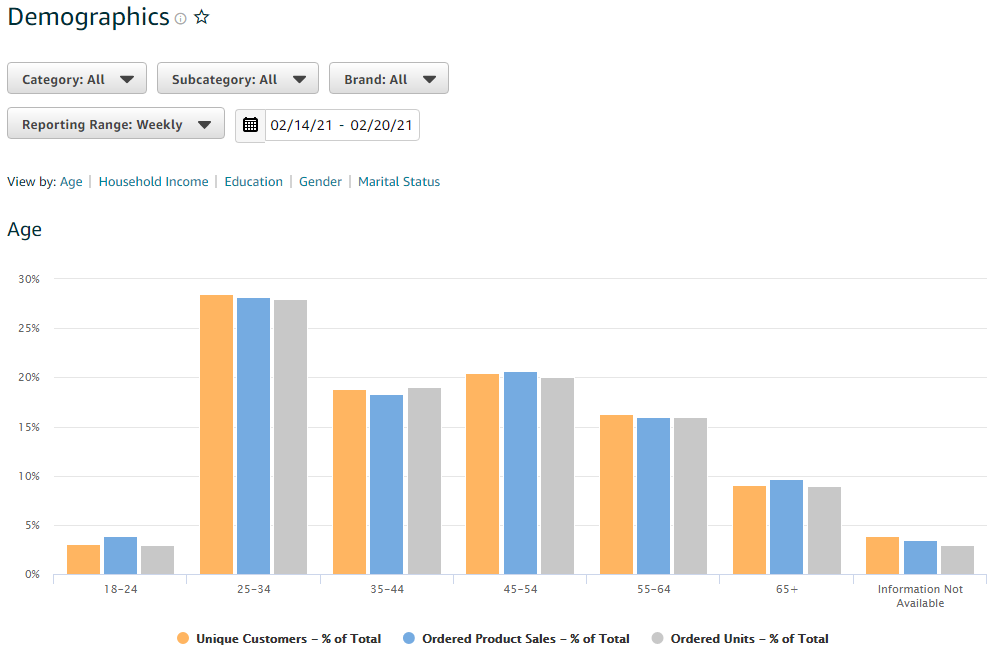
Above: Screenshot from the brand analytics dashboard – demographics
7) Marketplace expansion – expose your brand to more Amazon customers
A) After building a solid foundation on one marketplace, it’s time to consider expanding to an Amazon market in a different country
B) Replicating everything that’s unquestionably working from your original marketplace is the most logical place to start. Some adjustments are needed of course (language, specific marketplace requirements, fulfillment etc) but it’s much easier than building an account from scratch
C) Evaluate which new marketplace has the most potential and go there first, read the below article to get a more comprehensive overview of the process
8) Get serious about Amazon PPC and Amazon DSP
Amazon Advertising is a dense and important topic; check out the below articles to get up to speed:
NEED HELP WITH AMAZON?
The Bobsled team would love to support your efforts! For a free consultation, click the button below and submit your details.
{{cta(‘0825dfed-dfd0-4c96-bfc0-9b14009fed23′,’justifycenter’)}}

